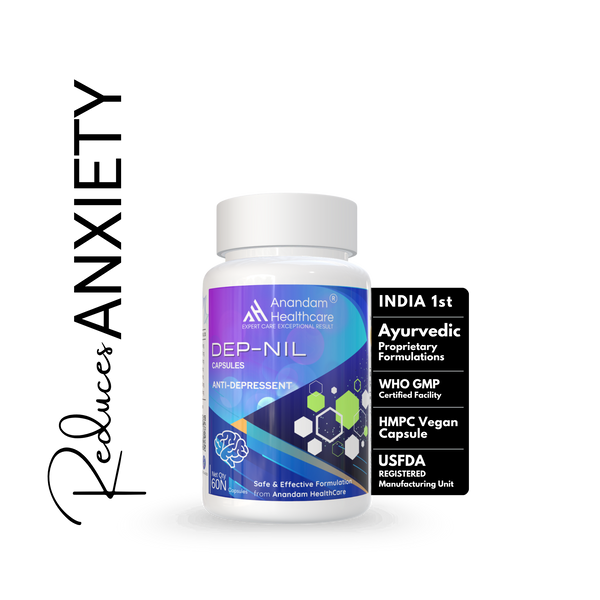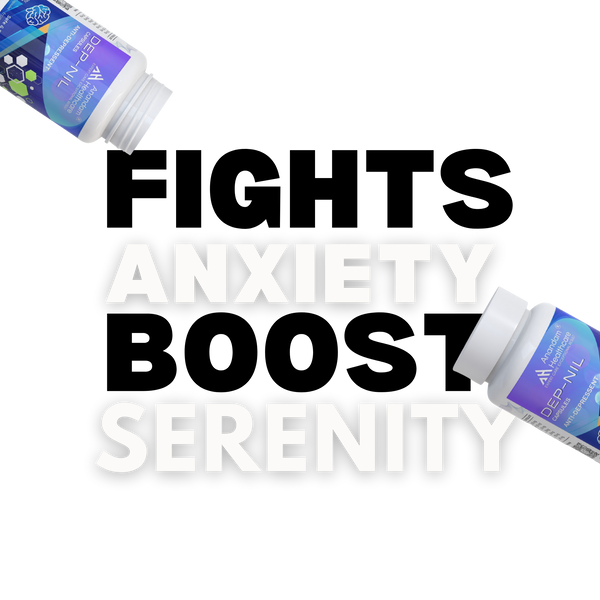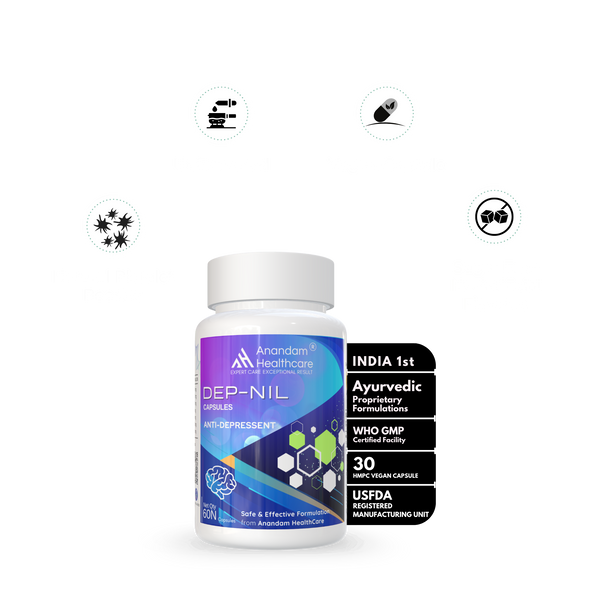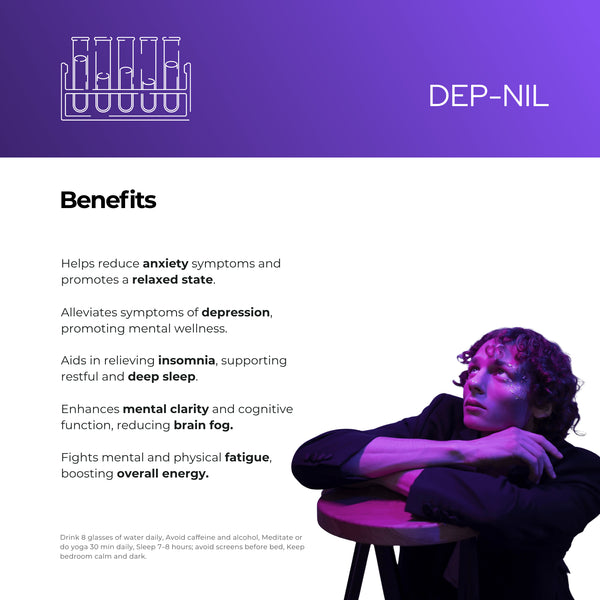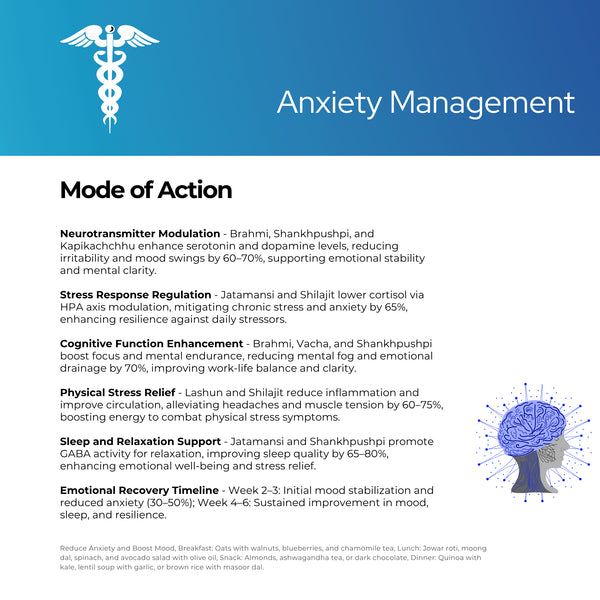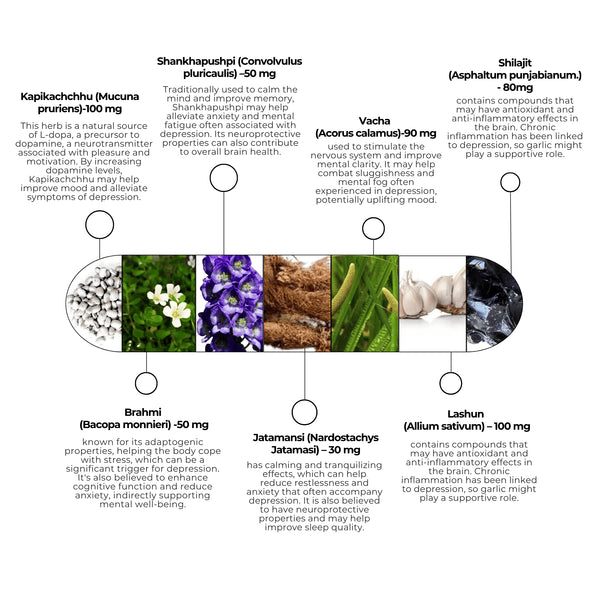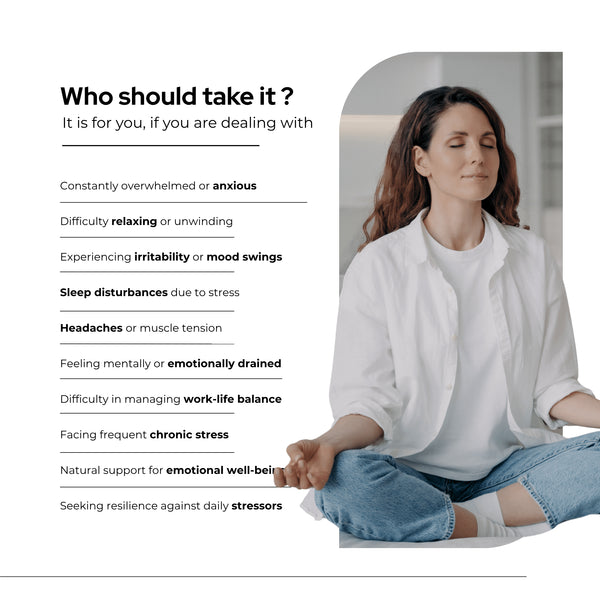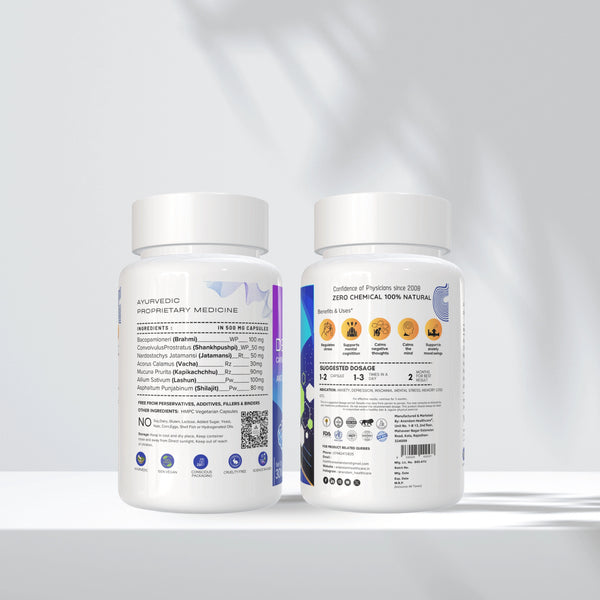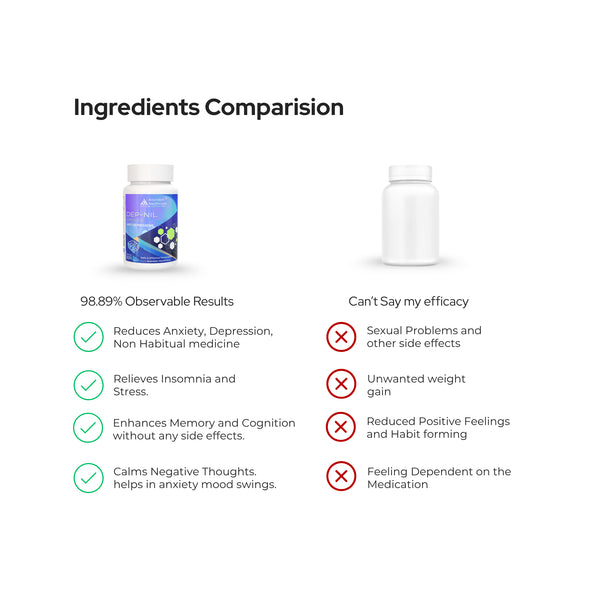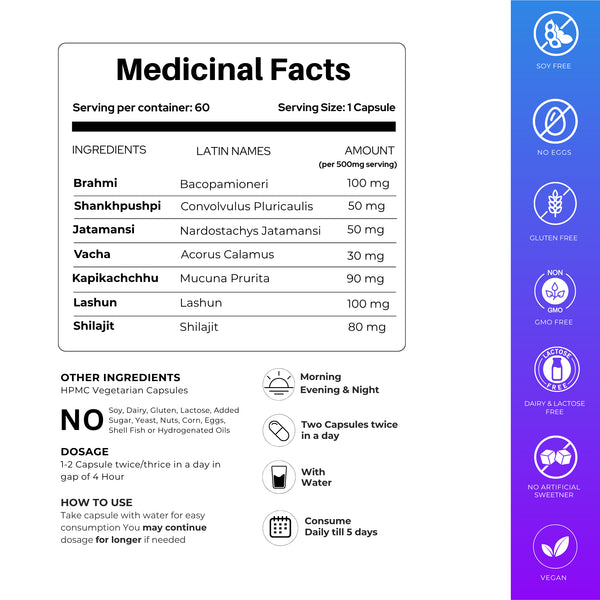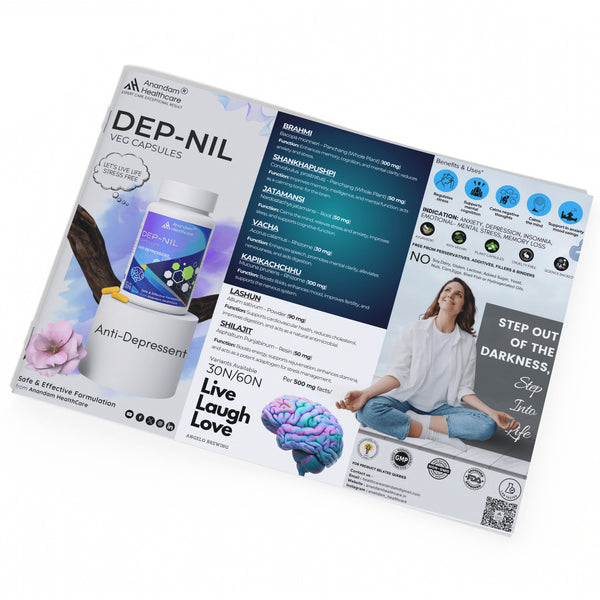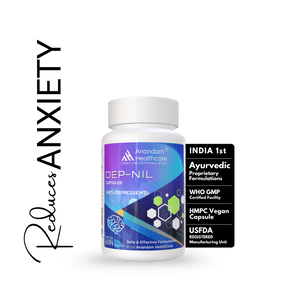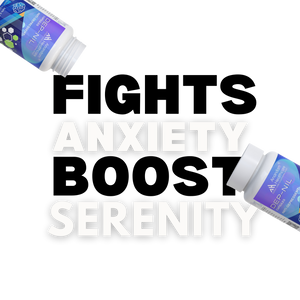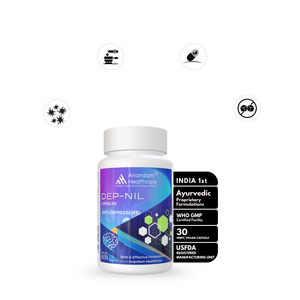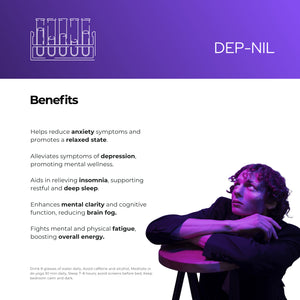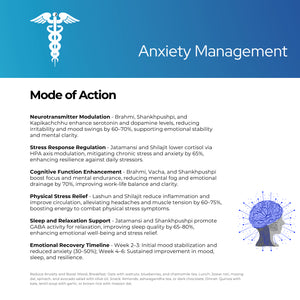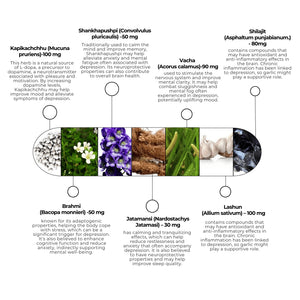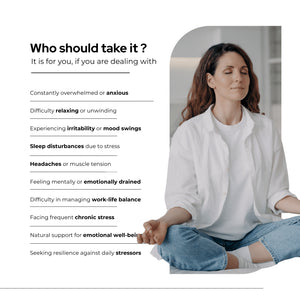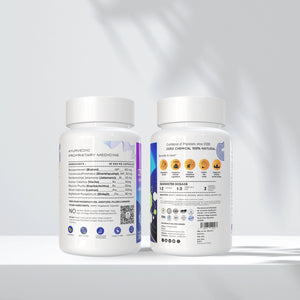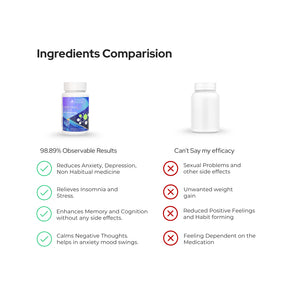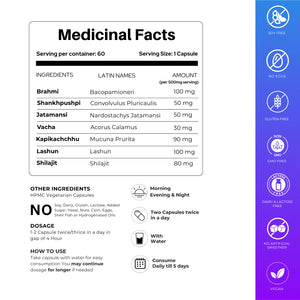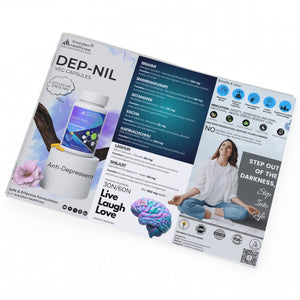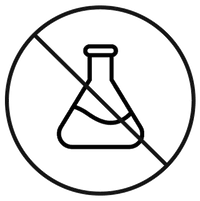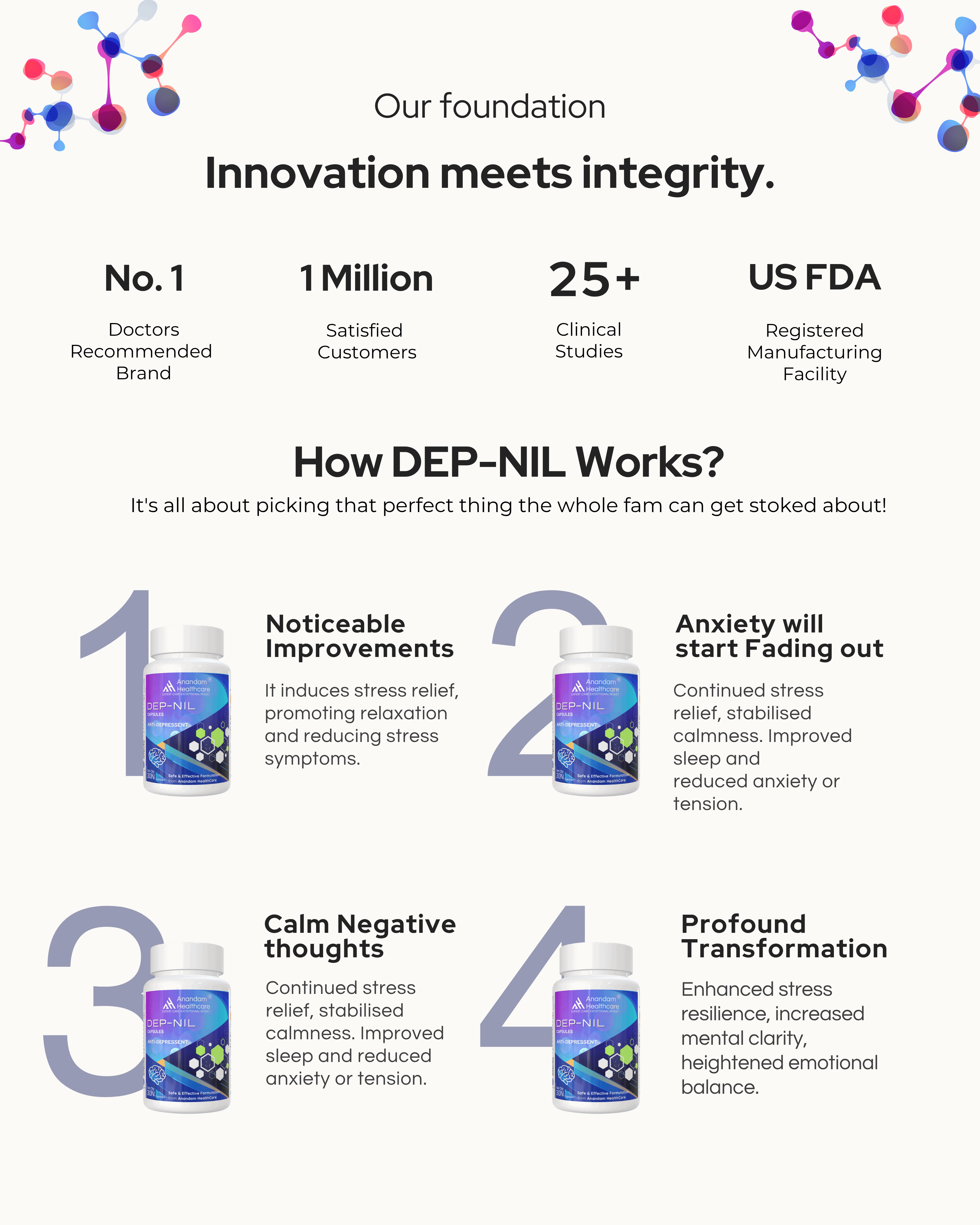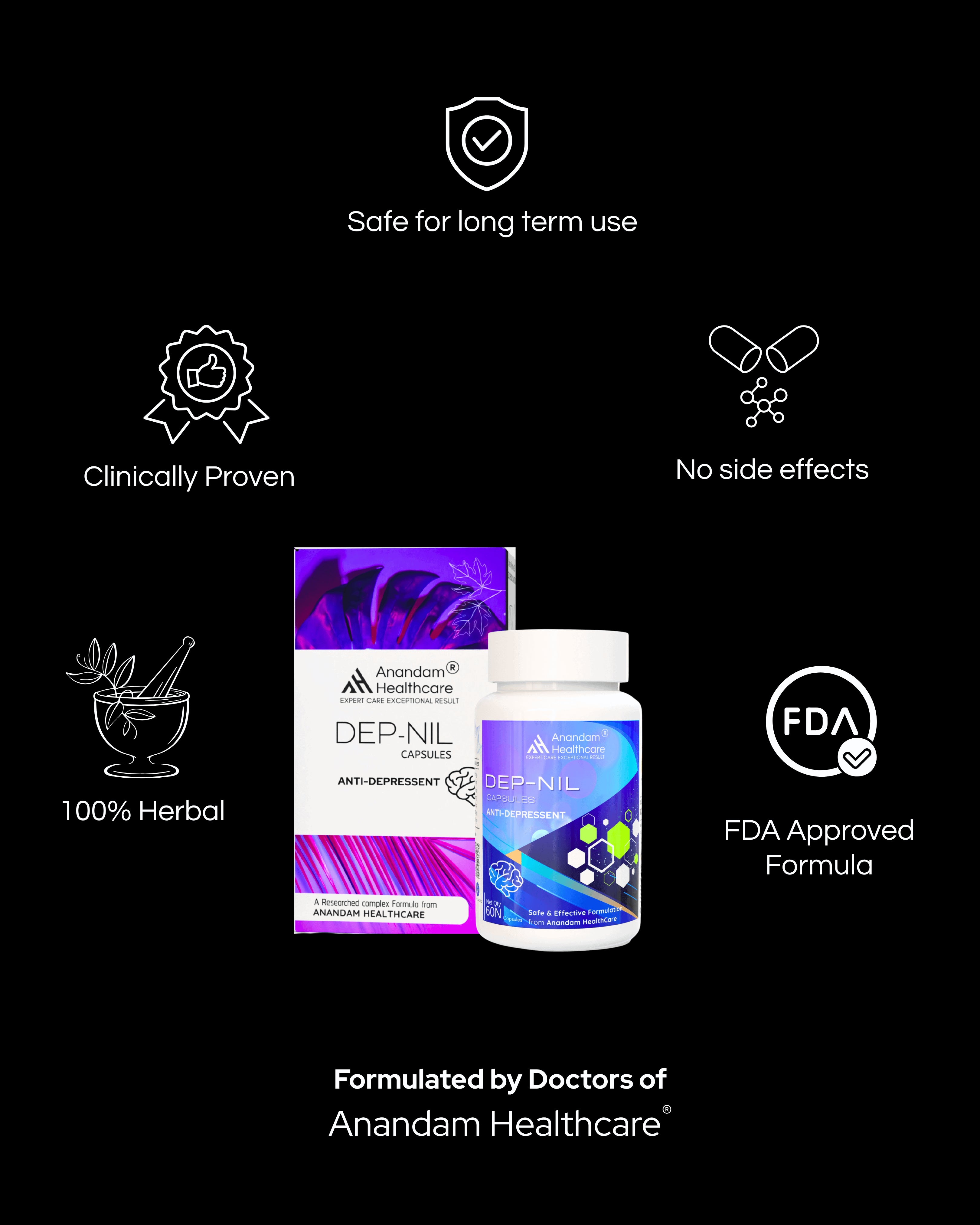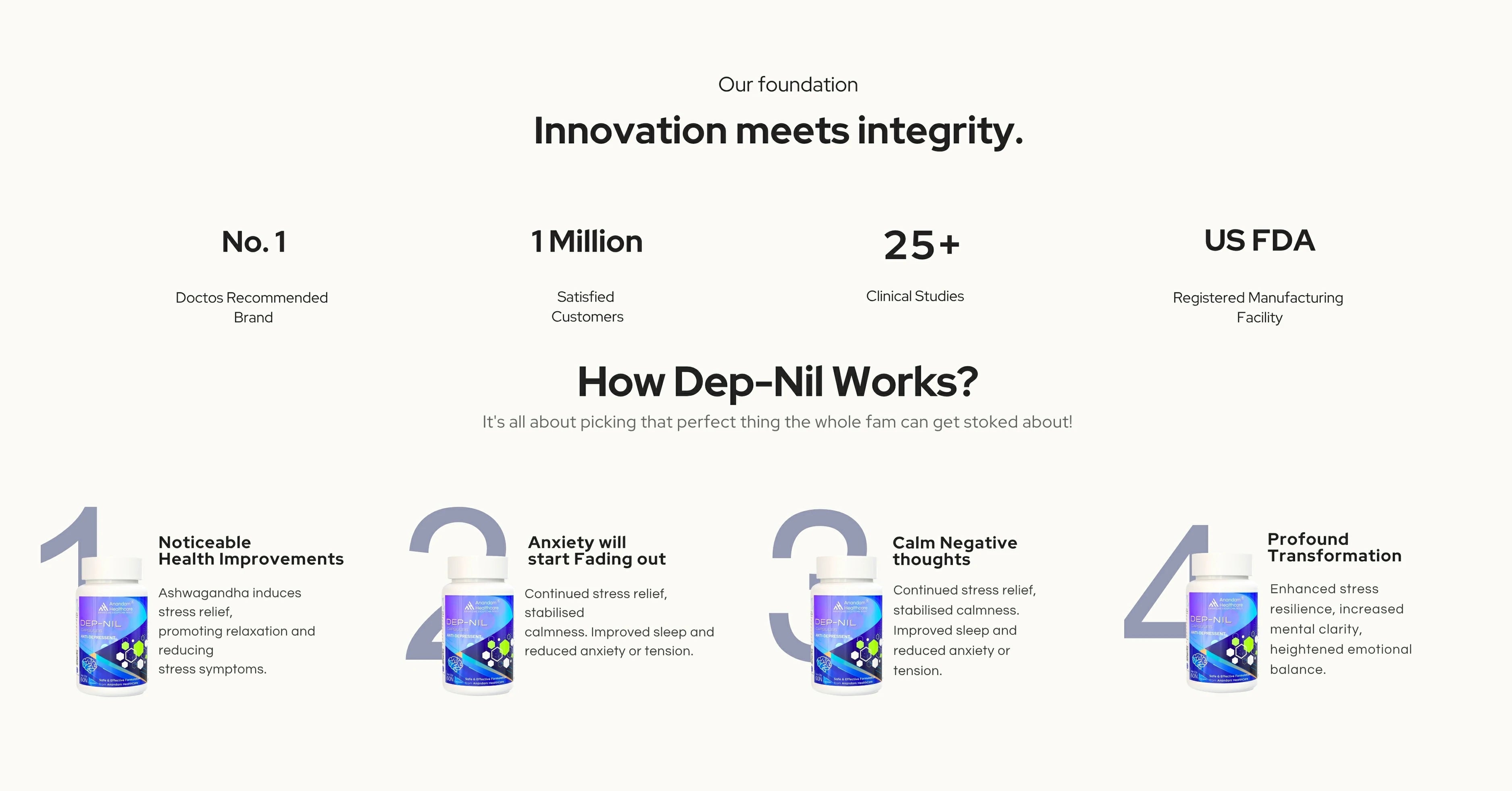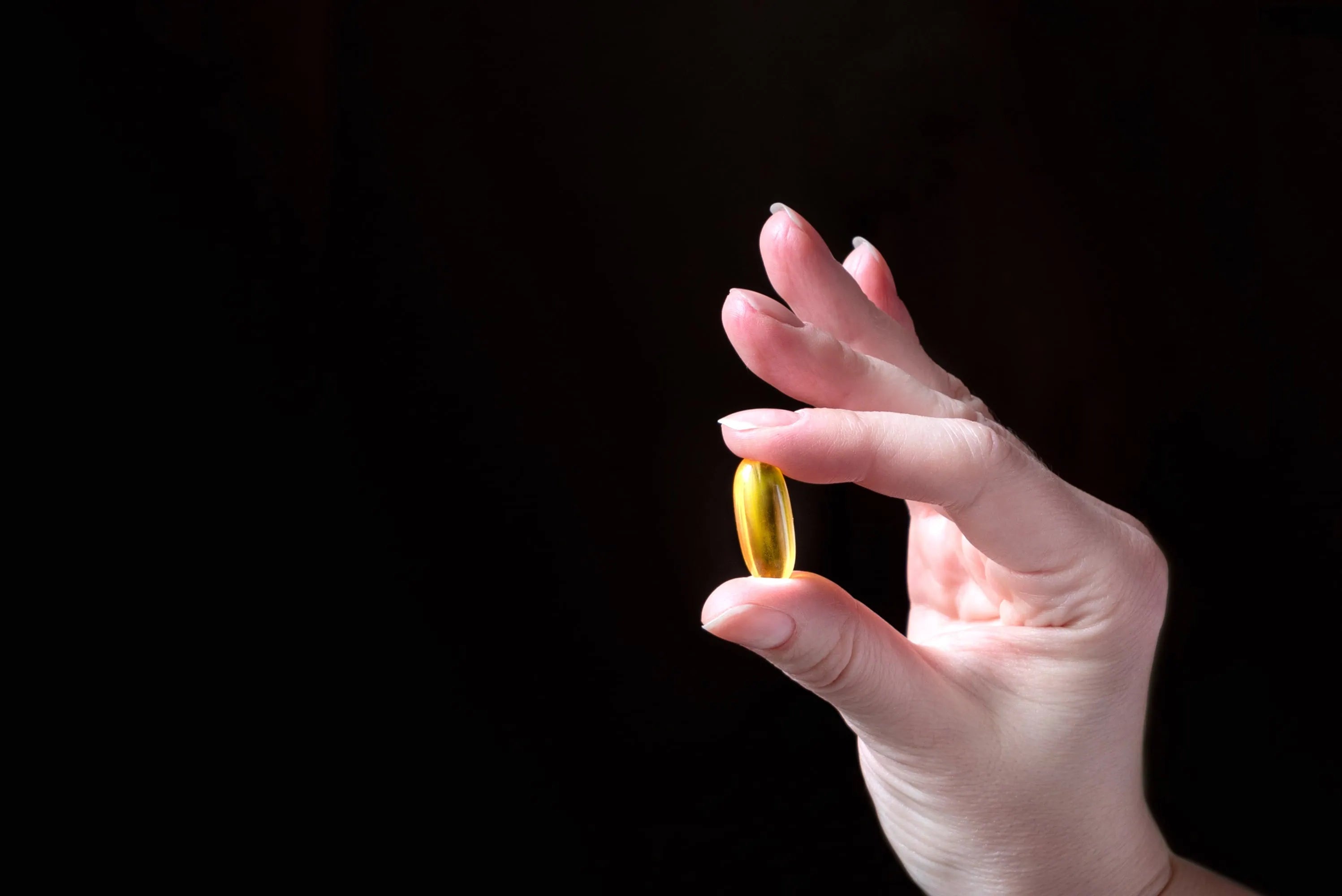Triple Action premium formula to help regulate stress, improve mental cognition and calm the mind. It is a powerful nerve and brain restorative containing herbs that promote general well-being. The blend of herbs helps to balance stress hormones and combat stress naturally. Brahmi calms the mind while Brahmi aids in promoting mental alertness. Jatamansi assists in combating exertion.
Lower stress levels | Soothe anxiety | Promote calmness | Boost mood | Manage cholesterol | Control irritability | Support in anxiety and mood swings
100+ bought in past month
Find Peace & Serenity with DEP-NIL Capsules
Are you tired of feeling overwhelmed, anxious, or stressed? Do you struggle to relax, unwind, or get a good night's sleep?
Introducing DEP-NIL Capsules from Anandam Healthcare, a natural blend of 7 herbs to support emotional well-being, reduce stress, and promote mental clarity!
Benefits:
• Supports anxiety and mood swings
• Regulates stress
• Enhances mental cognition
• Calms the mind
• Reduces negative thoughts
Who Should Take DEP-NIL Capsules?
If you experience:
- Constant anxiety or overwhelm
- Difficulty relaxing or unwinding
- Irritability or mood swings
- Sleep disturbances due to stress
- Headaches or muscle tension
- Feeling mentally or emotionally drained
- Difficulty managing work-life balance
- Chronic stress
Indication:
• Anxiety
• Depression
• Insomnia
• Emotional and mental stress
• Memory loss
Extra:
• All-vegan, cruelty-free, and gold standard quality
• Clinically trialed for efficacy
• Legacy of excellence since 2008
Dosage:
1-2 capsules, 1 to 3 times a day, or as directed by your physician.
Find your calm and serenity with DEP-NIL Capsules!
Therapeutic Blend:
A unique blend of 7 herbs, featuring Brahmi, Kapikachchhu, and Shankpushpi, to tackle depression, anxiety, and stress.
Herbal Ingredients:
1. Kapikachchhu (Mucuna pruriens) - Rhizome (100 mg)
- Boosts libido, enhances mood, improves fertility, and supports the nervous system.
2. Brahmi (Bacopa monnieri) - Panchang (Whole Plant) (100 mg)
- Enhances memory, cognition, and mental clarity; reduces anxiety and stress.
3. Shankhapushpi (Convolvulus Prostratus) - Panchang (Whole Plant) (50 mg)
- Improves memory, intelligence, and mental function; acts as a calming tonic for the brain.
4. Jatamansi (Nardostachys jatamansi) - Root (50 mg)
- Calms the mind, relieves stress and anxiety, improves sleep, and supports cognitive function.
5. Vacha (Acorus calamus) - Rhizome (30 mg)
- Enhances speech, promotes mental clarity, alleviates nervousness, and aids digestion.
6. Lashun (Allium sativum) - Powder (90 mg)
- Supports cardiovascular health, reduces cholesterol, improves digestion, and acts as a natural antimicrobial.
7. Shilajit (Asphaltum Punjabinum) - Resin (50 mg)
- Boosts energy, supports rejuvenation, enhances stamina, and acts as a potent adaptogen for stress management.
Boosts Energy and Vitality
Shilajit enhances stamina and reduces weakness, boosting vital energy. Kapikachchhu increases dopamine, improving motivation and physical energy levels.
Improves Blood Circulation
Lashun promotes vasodilation, enhancing cerebral oxygenation. Vacha improves brain blood flow, supporting mental clarity and reducing lethargy.
Supports Detoxification
Shilajit purifies bodily tissues, removing toxins that impair mental function. Lashun aids liver detoxification, enhancing overall detox processes.
Enhances Overall Resilience
Kapikachchhu strengthens the nervous system, improving stress adaptability. Shilajit’s fulvic acid boosts cellular repair, promoting longevity and resilience.
Supports Neurological Health
Vacha enhances intellectual strength via improved nerve transmission. Brahmi protects neurons from oxidative stress, potentially slowing neurodegenerative progression.
Enhancing Emotional Resilience
Formulation ensures herbs like Shankhapushpi, Brahmi, and Vacha work in tandem to enhance Medha (intellect) and emotional resilience, addressing Tandra (lethargy) and Unmada (mood instability).
Healthy Ingredients







Clinical proven results

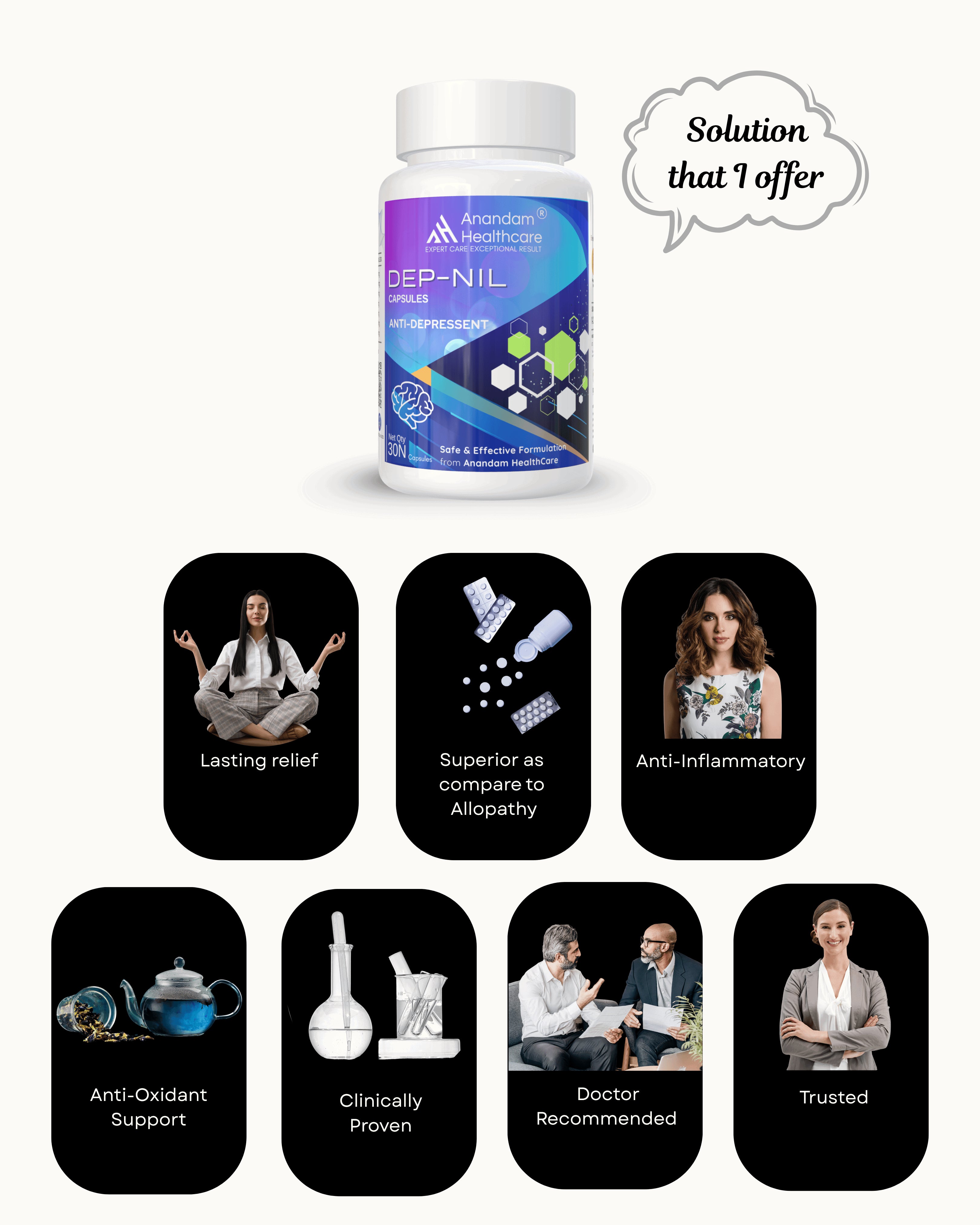
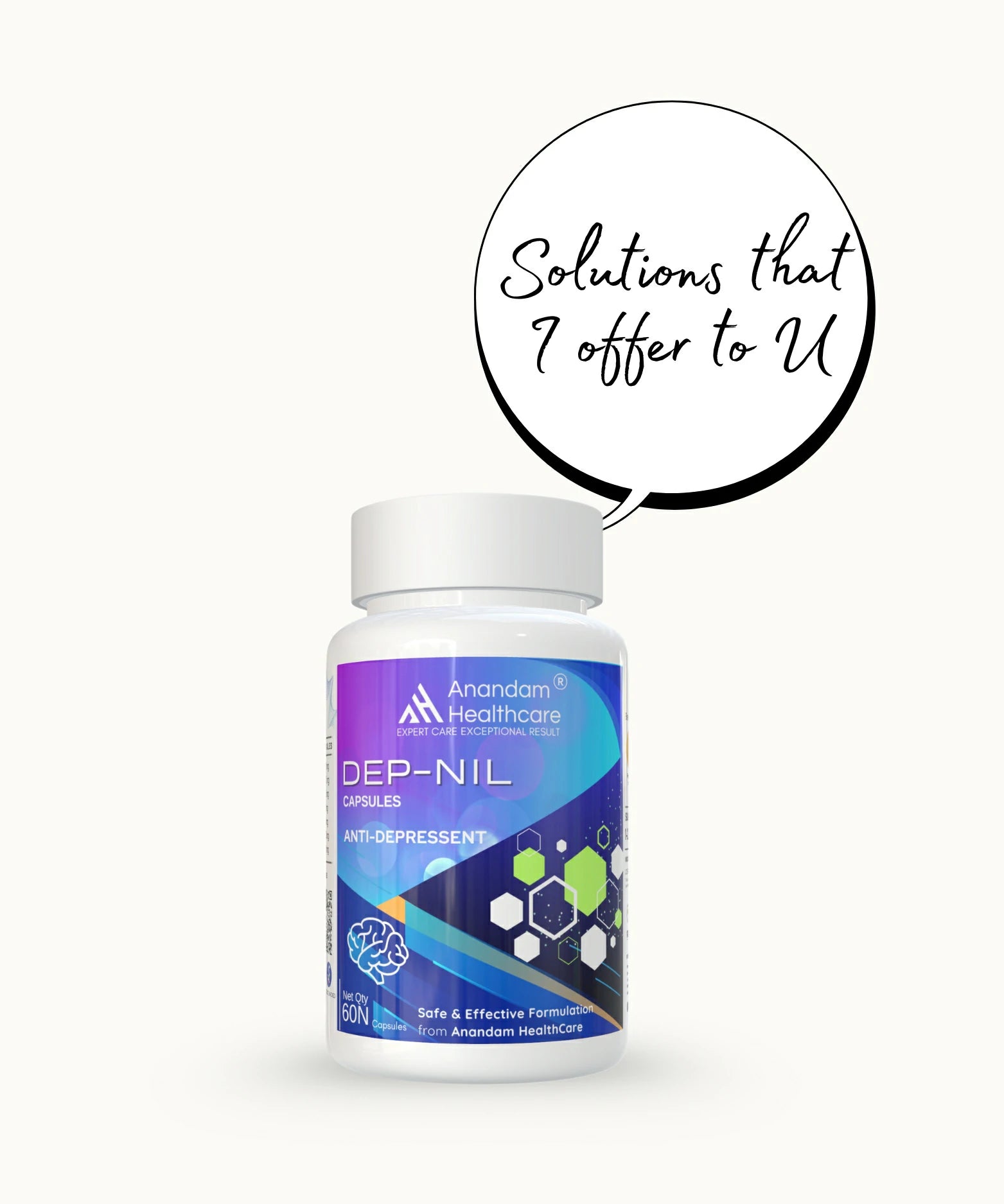
Calms the Mind
Jatamansi and Shankhapushpi reduce anxiety by modulating the HPA axis and lowering cortisol. Brahmi enhances GABA activity, soothing mental agitation.
Improves Cognitive Function
Brahmi and Shankhapushpi boost memory and learning via neuroprotection and acetylcholine activity. Vacha enhances cognitive clarity by improving cerebral circulation.
Reduces Stress and Fatigue
Shilajit combats fatigue by boosting mitochondrial ATP production. Jatamansi alleviates stress, reducing giddiness and mental exhaustion.
Promotes Restful Sleep
Jatamansi calms the nervous system to address insomnia. Brahmi reduces neural hyperactivity, promoting deeper sleep cycles.
Enhances Mood Stability
Kapikachchhu’s L-DOPA boosts dopamine, alleviating mood disorders. Shankhapushpi reduces irritability, supporting emotional resilience.
Combat Stress-Induced Negativity
The blend improves vitality, reduces fatigue, and lowers inflammation while also increasing dopamine levels to enhance motivation and pleasure.




